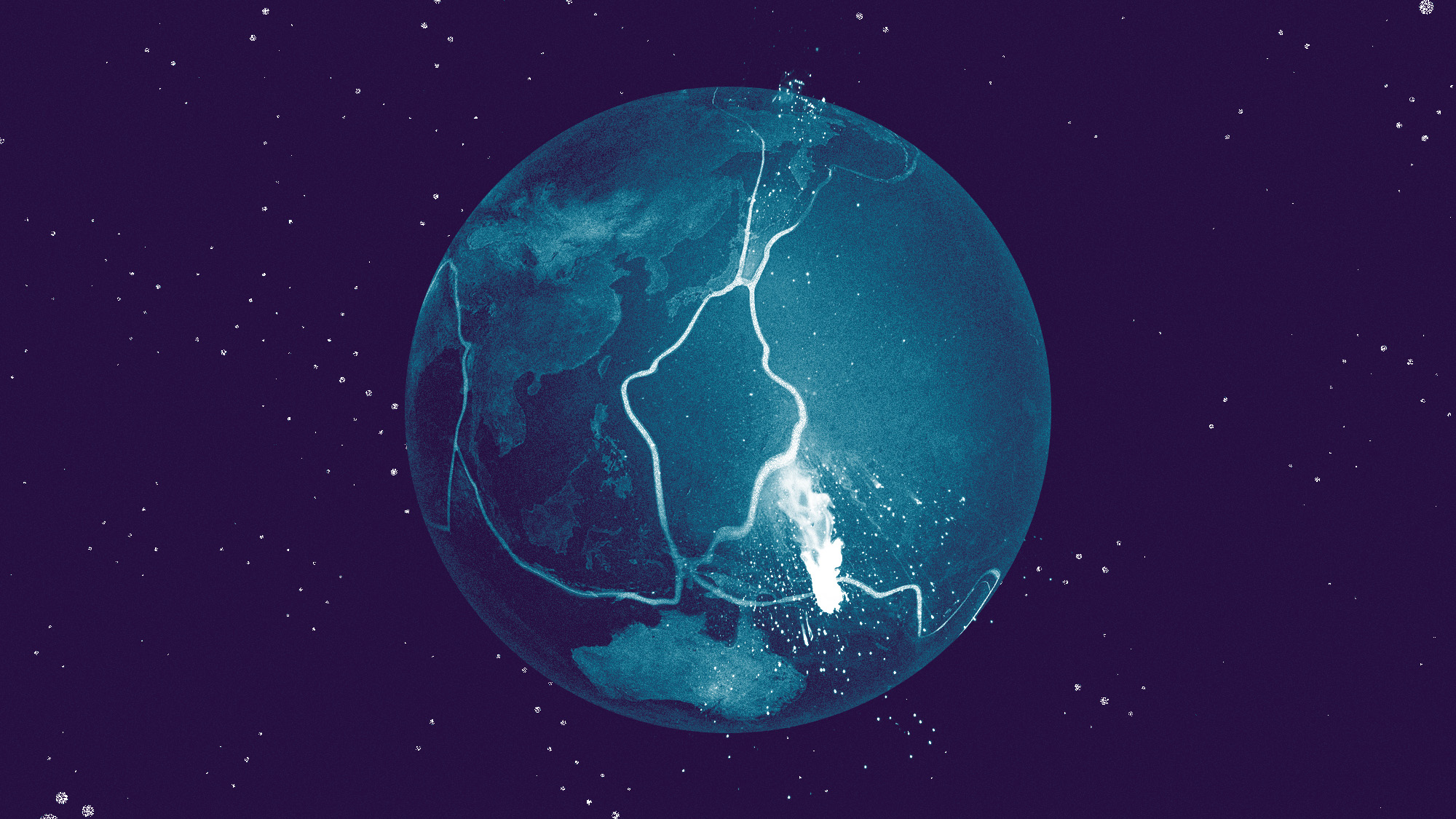Some of Earth's oldest crust is disintegrating. No cause for alarm, folks.
Even the most stable land is slowly changing


A free daily email with the biggest news stories of the day – and the best features from TheWeek.com
You are now subscribed
Your newsletter sign-up was successful
Stable parts of the Earth's crust may not be as immovable as previously thought. While much of the crust is affected by plate tectonic activity, certain more stable portions have remained unchanged for a long time. But new research suggests that even the oldest crust is disintegrating due to natural processes and these erosions could eventually alter the surface of the Earth.
Craton crumbles
Earth's crust, or the outermost shell of the planet, has drastically changed throughout geologic history, mostly due to the work of plate tectonics. Over time, the crust's topography and position, including the location of continents, has not been fixed even though it seems that way in the present era.
The planet has "more stable formations of rock," called cratons, which "contain old 'roots' … from which tectonic plates extend," said Popular Mechanics. These cratons have had long-term stability and have remained largely unchanged for millions of years. Recently, a study published in the journal Nature Geoscience found that some of the world's oldest cratons are breaking apart.
The Week
Escape your echo chamber. Get the facts behind the news, plus analysis from multiple perspectives.

Sign up for The Week's Free Newsletters
From our morning news briefing to a weekly Good News Newsletter, get the best of The Week delivered directly to your inbox.
From our morning news briefing to a weekly Good News Newsletter, get the best of The Week delivered directly to your inbox.
The disintegration happens in a process called decratonization. Though the cause of decratonization is unclear, scientists posit that subduction, "when a denser tectonic plate is forced beneath the other into the underlying mantle where it melts," and deep mantle plumes, "when a segment of the mantle rises to the surface due to its buoyancy and thermally erodes the crust," could be possible causes, said Phys.org.
The study examined the changes to the North China Craton (NCC) over 200 million years. Scientists observed subduction as well as a process known as flat-slab rollback, which is "when the subducting plate retreats back to the surface." The processes led to the lithosphere, which consists of the Earth's crust and upper mantle, thinning and extending seaward.
Altering crusts
The NCC was specifically studied, but "the North American craton, South American craton and the Yangtze craton in China may have experienced similar deformation," Shaofeng Liu, the lead author of the study, said to Phys.org. "All of these may have experienced early flat-slab subduction." Additional changes varied across the cratons. "Intense subsequent rollback subduction might have occurred in the Yangtze craton. In contrast, the North American craton underwent trench retreat following flat-slab subduction but did not exhibit significant slab rollback."
The changing of Earth's crust is a topic that is still being studied. Plate tectonics as they are currently known likely occurred during the past billion years, according to a 2021 study. The same study also found that Earth's crust plates "get weak and bendy, like a slinky snake toy, but they don't disintegrate completely," when they slide past each other, said LiveScience.
A free daily email with the biggest news stories of the day – and the best features from TheWeek.com
These movements have been instrumental in positioning the landmasses the way they exist now. Understanding how the crust changes can give insight into how the planet may look in the future. "Ancient lithosphere can be broken apart, and this disintegration can be caused by this special form of subduction occurring near oceanic plates, revealing how the continents evolved over Earth's history," said Liu. Substantive changes are still hundreds of millions of years away.
Devika Rao has worked as a staff writer at The Week since 2022, covering science, the environment, climate and business. She previously worked as a policy associate for a nonprofit organization advocating for environmental action from a business perspective.
